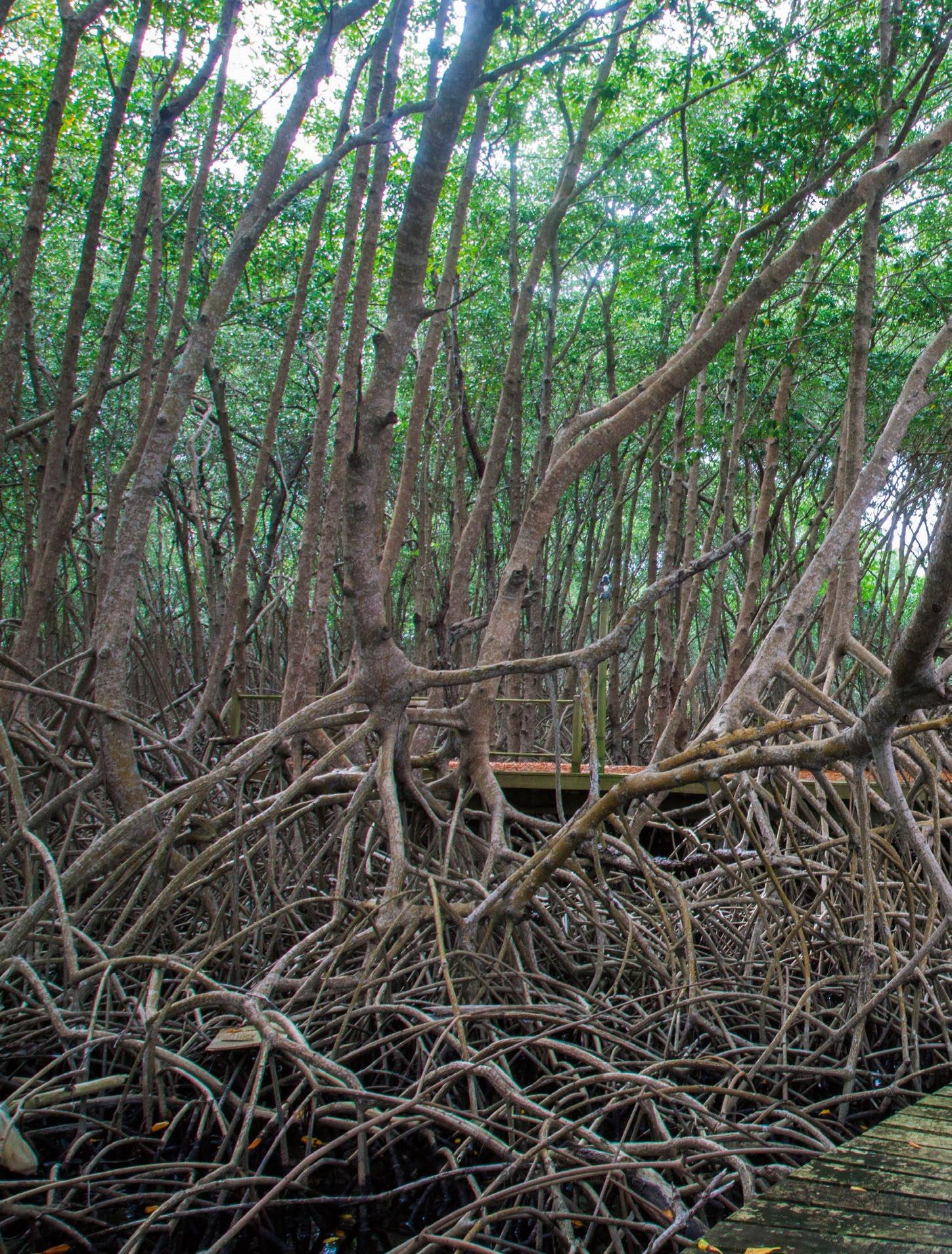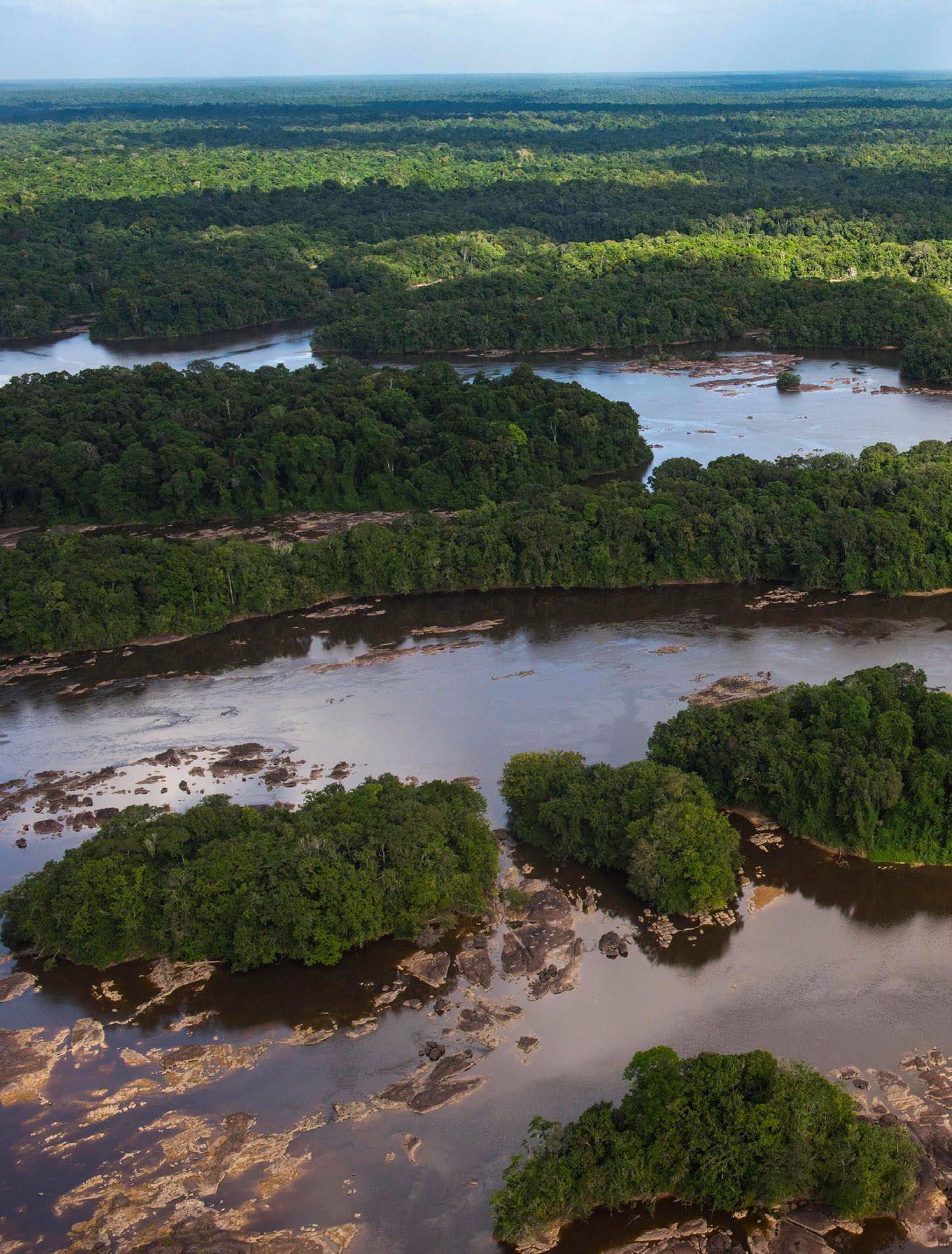Guyana 83,000 square miles Highest point: Mt Roraima, 9,301 feet
Foto Natura, Courtesy Guyana Tourism Authority
Where to start with Guyana, the Caribbean region’s eco-tourism treasure? Maybe with the Pakaraimas near the border with Venezuela, dramatic table mountains surrounded by remote valleys, the source of some of Guyana’s mightiest rivers. Or with vast Shell Beach on the Pomeroon coast, nesting site for endangered sea turtles. Or with the Iwokrama rainforest along the Essequibo, a protected wilderness that’s home to jaguars and tapirs and hundreds more species. The best way to experience wild Guyana is through community-run lodges in Amerindian villages across the Rupununi Savannah, from Surama to Nappi, Annai to Karasabai, each offering rustic hospitality, proximity to amazing scenery and wildlife, and a chance to explore landscapes unlike anything in the insular Caribbean. And even if you can’t spare more than a day, an hour-long flight from Georgetown will get you to Kaieteur Falls — they may look spectacular in photos, but nothing compares to the real thing.
For wildlife lovers, the most coveted species to spot in the Guyanese wild may be the jaguar
40
WWW.CARIBBEAN-BEAT.COM





























